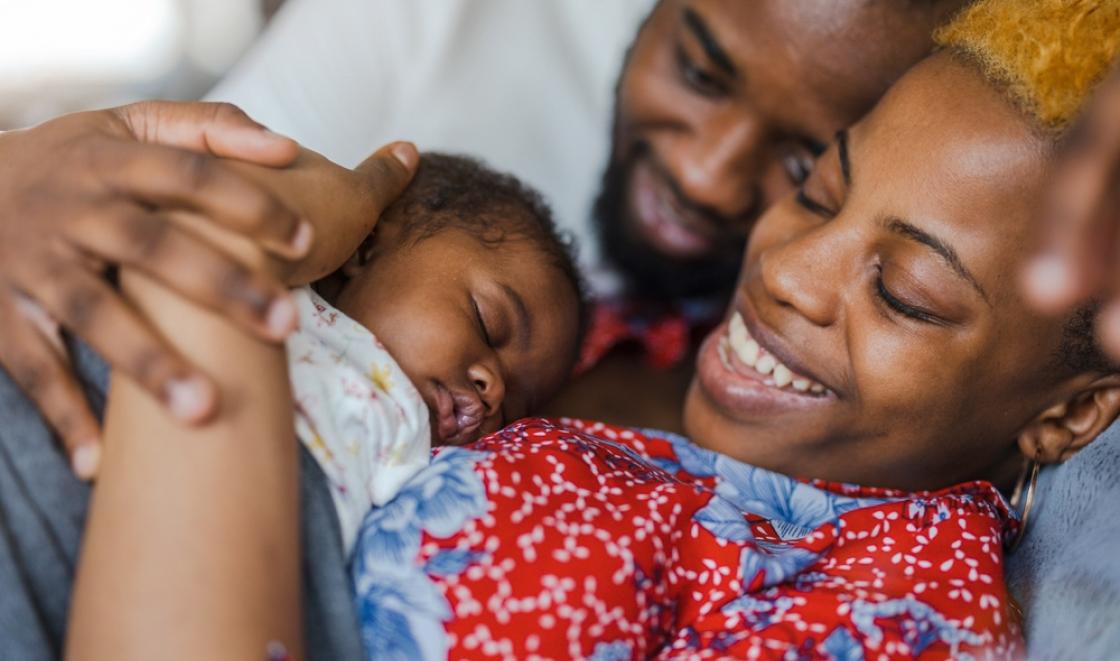Exploring the experiences of women who give birth under general anaesthetic
Birth is an important, life changing event and most women and birthing people are awake when they have their baby and can hold and bond with their babies.
Birth is an important, life changing event and most women and birthing people are awake when they have their baby and can hold and bond with their babies.
However, in the UK, approximately 6000 women and birthing people every year require a caesarean section with general anaesthetic (GACS). This means they are not awake when they give birth and do not experience the important moments following birth, when mother and baby first meet. Every year, around 1370 women and birthing people require admission to Intensive Care Units (ICU) and for some, this will immediately follow a GACS. Depending on the clinical situation, these new mothers may be unable to interact or emotionally connect with their newborn baby for hours, days or weeks.
This project, the GABI study aims to explore the mental health and bonding experiences of women and birthing people who need GACS/ICU admission. The research team will also explore the experiences of father/partners during this period.

The research team will use routinely collected health data from the early-Life data cross linkage in Research (eLIXIR) database to gather anonymous information on women who have experienced GACS/ICU admissions including: age, ethnicity and if English is their first language, clinical information such as mental health issues before pregnancy and after the birth and information on breastfeeding.
They will also collect information on women who were awake during a caesarean section so data from both groups can be compared.
They will then conduct a survey to explore the mental health and bonding experiences of women and birthing people who undergo GACS/ICU admission. Women who undergo GACS/ICU admission and caesarean section while awake will be invited to complete the survey, so that the results from these groups can be compared.
Interviews with mothers and fathers/partners will be held to find out more about their experiences of GACS. All interviews will take place between 10-14 months postnatally to allow for recovery time and space to reflect on their experiences. Interviews may be face-to-face (depending on location) or online as preferred. We recognise that some women and fathers/partners may need ongoing support, especially if they find talking about their experiences traumatic. If further support is needed, participants will be signposted to support services that can offer help.
A patient and public involvement group consisting of women with lived experience of GACS has been set-up. This group will provide ongoing support for the project and advise on the project plan, study methods and participant recruitment materials. They will also help troubleshoot recruitment challenges, interpret study findings and discuss and plan stakeholder and dissemination activities.
NICE (2021) guidance states that a woman’s preference for her caesarean section birth should be accommodated whenever possible, such as music playing in theatre, lowering the screen to see baby born, or silence so that the mother’s voice is the first her baby hears. Furthermore, NICE states that early skin-to-skin contact should be offered and facilitated between mother and baby (NICE, 2021).
However, these recommendations cannot apply to women and birthing people who undergo GACS because they are unconscious during birth. This research will offer recommendations on how women, birthing people and their families can be supported immediately after GACS and throughout the postnatal period, to ensure optimum mental health and maternal/infant bonding. Furthermore, there is no guidance on how women, birthing people and fathers/partners should be supported after ICU admission, therefore this research will provide recommendations for postnatal care after discharge from ICU.
Findings from this research will be used to co-design two postnatal information sheets for GACS and ICU admission. The information sheets will be co-produced with service users and given to women and birthing people when they are discharged from hospital. The information sheets will include advice on mental health for new mothers and fathers/partners. It will also include information on how women, birthing people and their families might feel after experiencing these events.
This study is funded by Wellbeing of Women and the Burdett Trust for Nursing as part of a Research Training Fellowship. It was adopted by ARC South London in January 2025.